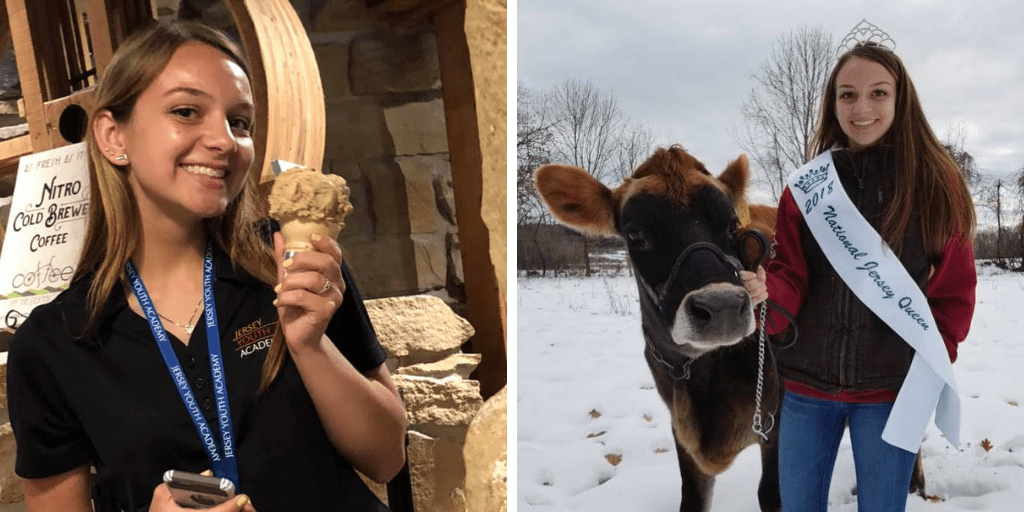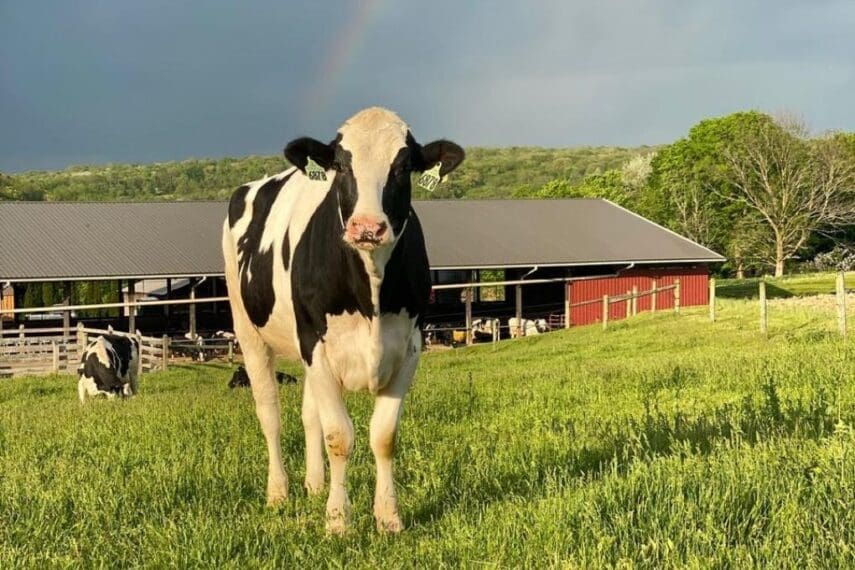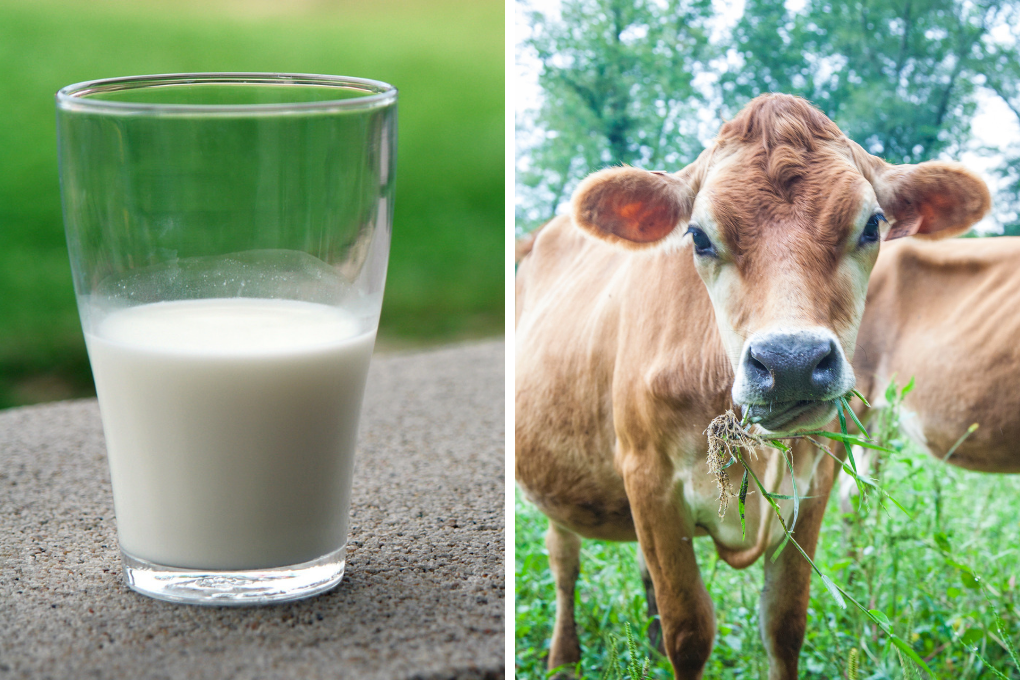
Whether I am at a fair, scrolling through social media, or talking to friends, I hear many of the same questions as well as common misconceptions about the dairy industry. Let’s start with the top five I get on a regular basis.
1. Aren’t most dairy farms factory farms?
No, it is actually the exact opposite! 95% of dairy farms in the U.S. are family owned and operated and that number is nearly 100% in New England. Also, some farms may be larger than others, but a large farm can still be family owned and operated.

Learn more about Fairmont Farm in East Montpelier, VT which is a large family dairy farm.
2. Isn’t whole milk fattening?
No again! Whole milk, also known as “full-fat milk”, contains only 3% fat which means that there is only a slight difference in fat content and in calories when comparing 2% and whole milk. There is a 35 calorie difference, which is like taking a five minute brisk walk for the average person. Your body needs fat to help absorb nutrients like Vitamin D and produce hormones that your body needs. Whole milk is also more filling, which means that when you drink a glass of whole milk, you are satisfying your hunger with nutritious proteins and fat. This helps prevent you from over-snacking (usually on less healthy foods).
There is something for everyone in the dairy case. Whether you prefer: whole, 2% , 1% , skim or lactose free—all dairy milk contains the same 9 essential nutrients that non-dairy “milks” (almond, rice and coconut to name a few) find difficult to match.
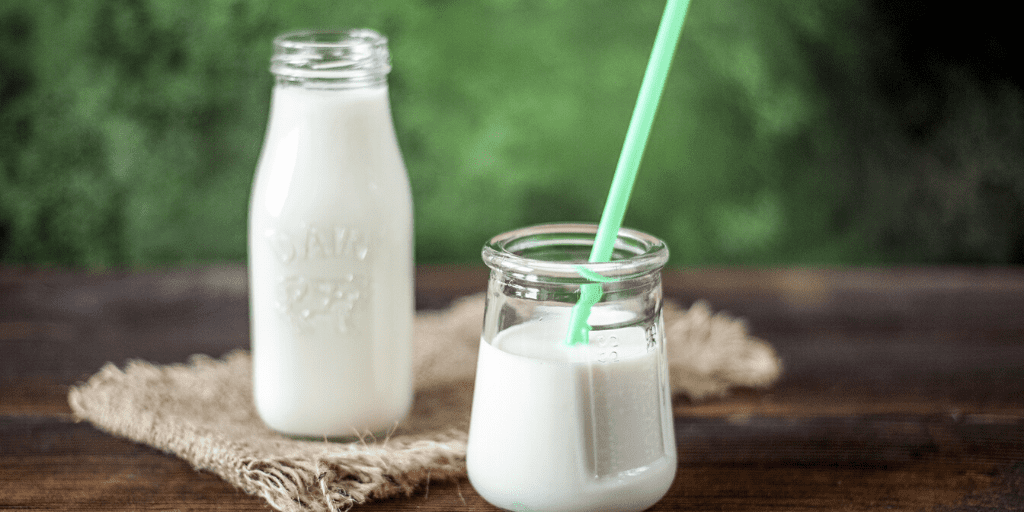
Learn more about how alternative “milks” stack up to dairy milk when it comes to price and nutrition.
3. “I only buy milk if there is an ‘antibiotic-free’ label”
Good news – all milk at the store whether regular or organic – is antibiotic free, so you don’t have to look for the label! Milk is tested multiple times for antibiotics before it even leaves the farm. If antibiotics are found, then the entire tank is dumped and will not go to the processing plant to be pasteurized or sold.
Why would antibiotics be given to a cow? Farmers work with their veterinarians to provide medicines to cows only when they are sick – just like you may work with your doctor to provide medicines to treat you and your family when ill. All milk – regular and organic – is tested multiple times before it gets to you, and if it tests positive for even the slightest amount of antibiotics, it is safely discarded and never reaches the store. On a conventional farm, the cow is taken from the milking herd for treatment, and not returned to the herd until her milk tests free of antibiotics. On an organic farm, that cow permanently leaves the milking herd.

I hope this explanation helps you feel more at ease knowing that all milk sold in stores is safe and antibiotic-free regardless of the label.
4. Does chocolate milk come from brown cows?
No! All milk is originally plain, white milk. Flavors such as chocolate, strawberry, coffee, etc. are all added later.
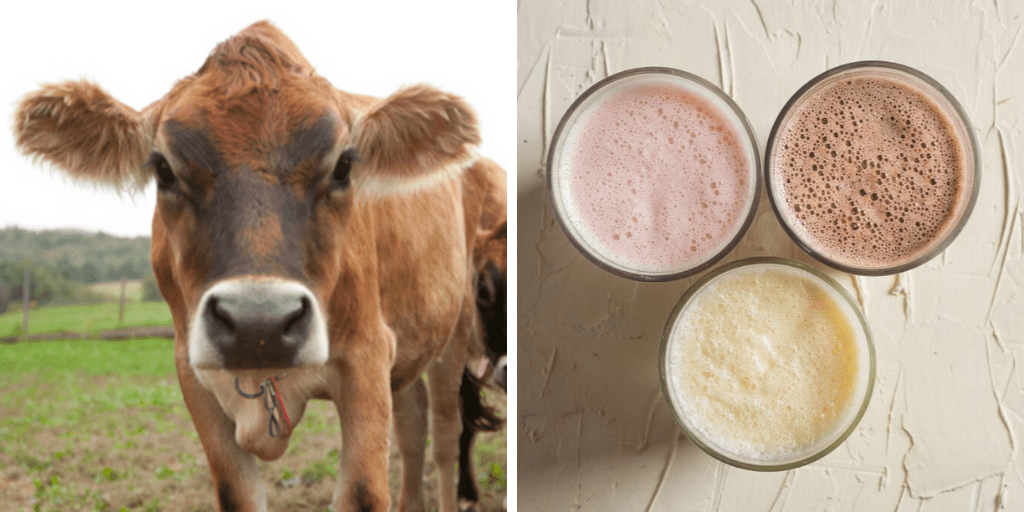
5. Are there different types of dairy cows?
Just like there are many different breeds of dogs, there are also different breeds of dairy cows. The seven main dairy breeds are Holstein, Red and White Holstein, Jersey, Ayrshire, Brown Swiss, Guernsey, and Milking Shorthorn.
The most common dairy cow breed is the Holstein which has the black and white spots you are probably familiar with. I own Jersey cows which are the brown cows known for their rich, creamy milk high in butterfat. Learn more about each dairy breed on the Meet the Cows page.
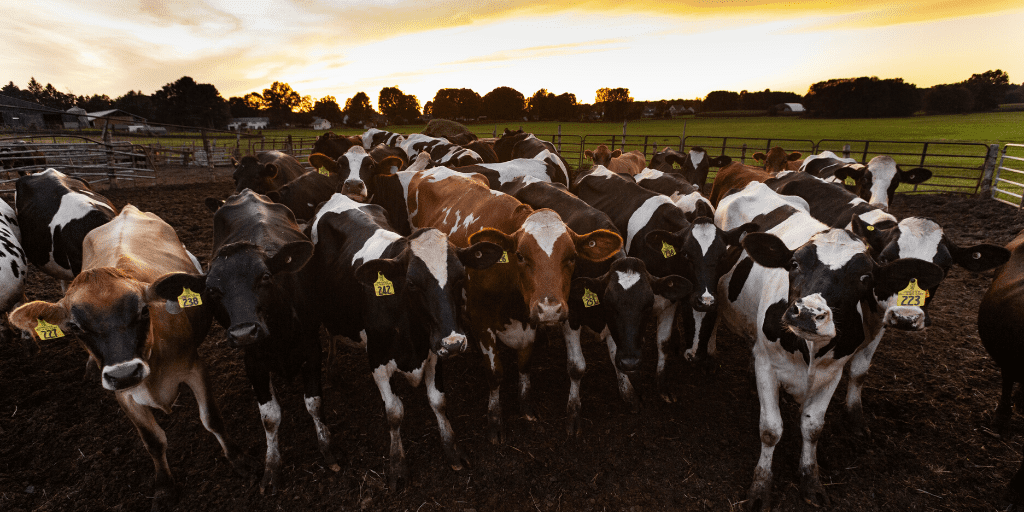
In our digital world, anyone can be an “expert”. How do I know the information I’m receiving is credible?
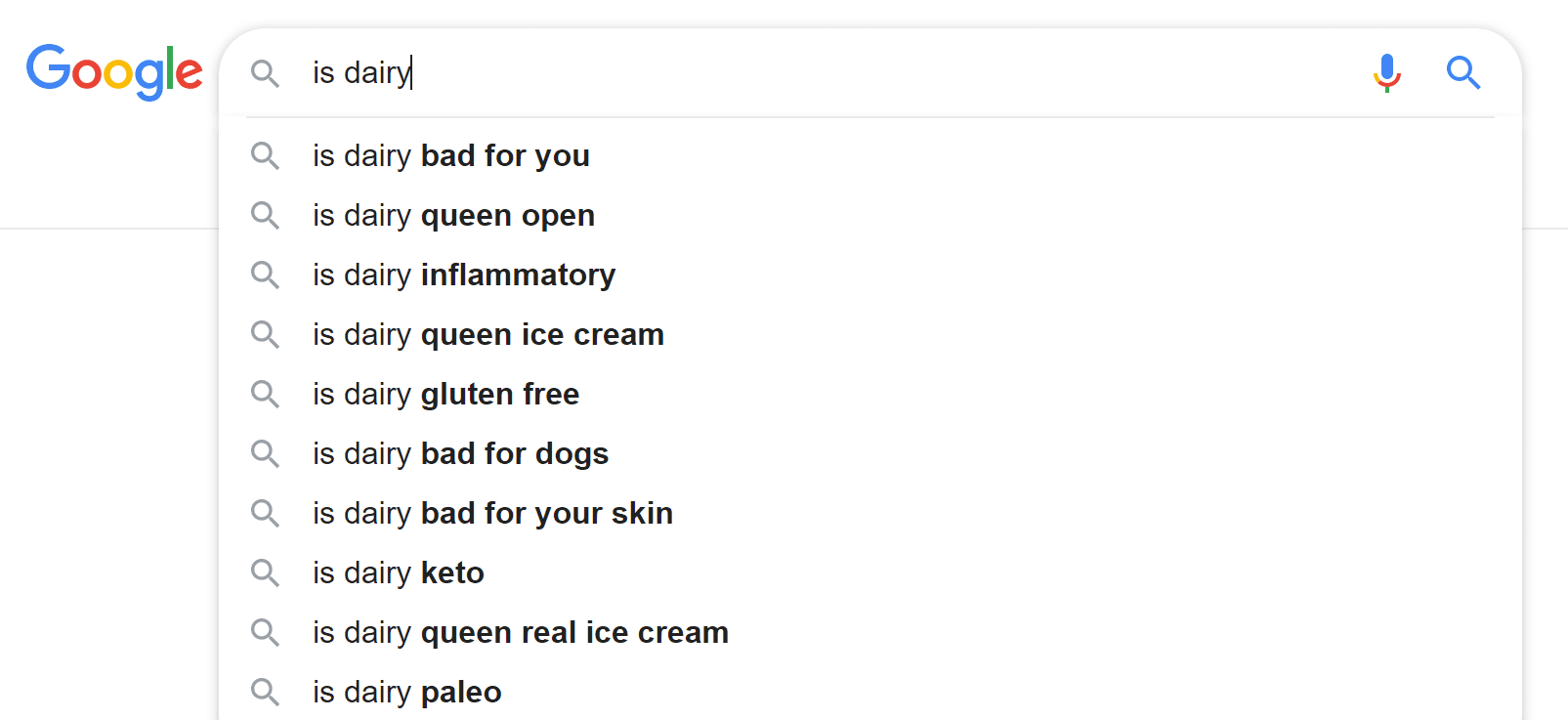
We are constantly inundated with information and it’s harder than ever to distinguish reputable sources. If you have the chance to meet a dairy farmer at a fair or during a farm tour, ask a question! Dairy farmers also work with experts like veterinarians, dairy nutritionists, and agronomists so they can provide the best possible care for their animals while protecting our natural resources. Want to get connected to your local dairy farmer or one of these other experts? Email info@newenglanddairy.com.
When it comes to nutrition, a registered dietitian (RD) is a great resource. Many people mistakenly use the terms “dietitian” and “nutritionist” interchangeably. Someone may consider themselves a “nutritionist”, “health expert” or “guru” with little to no credentials. Registered dietitians are held to rigorous academic and practice standards. Additionally, registered dietitians are the only legally recognized nutrition experts and the title of “Registered Dietitian” (as well as the RD/RDN credentials) are protected by the law. The term “Nutritionist” is not a protected title. This means that legally ANYONE can call themselves a nutritionist. Here’s a great chart and blog post that compares a Registered Dietitian to a Nutritionist.
New England Dairy is staffed by registered dietitians and can be a great resource for all your dairy questions. Check out their FAQ page or shoot them a message to get all of your dairy questions answered.
This post was written by the 2018-2019 National Jersey Queen Abby Shaw from Oxford, MA. Abby currently attends Assumption College where she is pursuing a dual major in English and Secondary education. Abby has been actively involved in 4-H for the past decade and has worked with Jersey cattle since she was 8. She has 20 of her own Jerseys.
